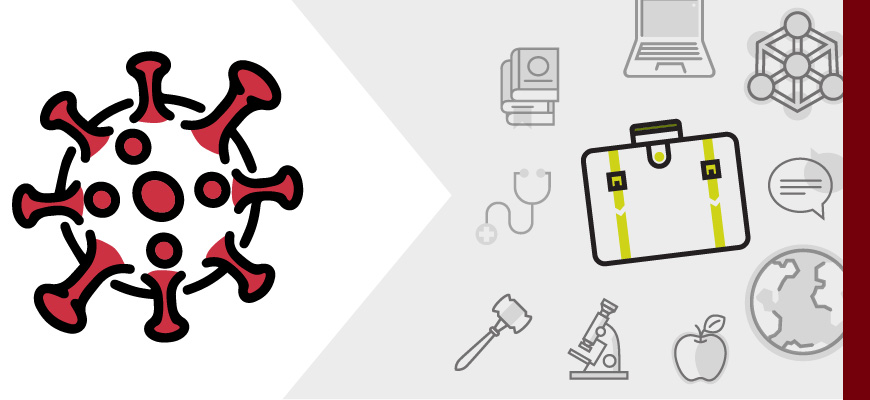
COVID-19 impact: Travel and tourism
Tourism professor Simon Hudson says travel bans, theme park closings could have long-term effect on hospitality industry
Posted on: March 20, 2020; Updated on: March 20, 2020
By Craig Brandhorst, craigb1@mailbox.sc.edu, 803-777-3681
As the coronavirus threatens health and upends daily life throughout the world, UofSC Today is turning to our faculty to help us make sense of it all. While no one can predict exactly what will happen in the coming weeks and months, our faculty can help us ask the right questions and put important context around emerging events.
Simon Hudson, a professor of tourism in the College of Hospitality, Retail and Sport Management, discusses COVID-19’s economic impact on the tourism industry.
As we continue to assess the economic and cultural impact of COVID-19, what are the most worrisome variables for the travel and tourism sector — apart from the contagion itself?
Unfortunately, the tourism industry is already vulnerable to many “uncontrollable” factors (the economy, natural disasters, exchange rates etc.), and many parts of the world are “over-dependent” on tourism, so the impacts of this crisis will be devastating for many. I think the small and medium-sized businesses in this sector (and those without deep pockets) are most at risk, as are those who depend on tourism in the most affected parts of the world (e.g. Italy, Spain etc.). I think it will take 6-12 months for travelers to start surfacing, and for many we are looking at a whole summer without business — many businesses will not survive this without government support as it is a low-margin industry.
What factors should we be paying attention to as we try to gauge the severity going forward? For instance, what, if anything, might indicate a positive turn?
The industry will recover, but it will take time. When consumers start to “perceive” that it is safe to travel, only then will we see an upturn. Domestic tourism is likely to be the first to recover. There will be plenty of pent-up demand, but travelers will initially be very cautious. Long-haul travel will take longer to recover.
Are there any creative ways that the tourism industry can offset some of the economic impact at this point?
They say that during a recession you should continue to advertise so that when consumers start buying again, you will be top of mind. It is the same for travel, and I have already noticed some creative campaigns from destinations during this crisis. Greece, for example, has just launched a “Till Then, Stay Safe” campaign urging international travelers to “#staysafe” during these difficult times due to the coronavirus pandemic — while continuing to dream and plan an escape to the stunningly beautiful country of Greece. Quite clever. Portugal has a new domestic campaign along the same lines. I am actually just preparing a research proposal to look at how destinations can recover from this crisis, and I will be examining the success of such communication strategies in more detail.
Same question but from the traveler’s perspective: Are there ways that people can still enjoy a vacation in the age of quarantine — that still contribute to the economy? (For example, we can all go hiking alone in the woods, but it’s not clear how that would help the industry.)
Good question. I am actually “stuck” in a Canadian ski resort at the moment that has closed all operations. However, while I can, I will be enjoying the outdoors by going cross-country skiing, snowshoeing and hiking, whilst trying to support local businesses (through take-out and home delivery for example, and by renting sporting equipment).
I have written before about the increasing use of virtual reality in tourism, so I am sure we will see a surge in people “virtually” experiencing a destination/vacation, and this will keep people interested in travel. And booking travel for later in the year (or for 2021) would certainly help the industry, although I am sure travelers would want to be reassured that they are covered insurance-wise in case of further disruptions.
Share this Story! Let friends in your social network know what you are reading about